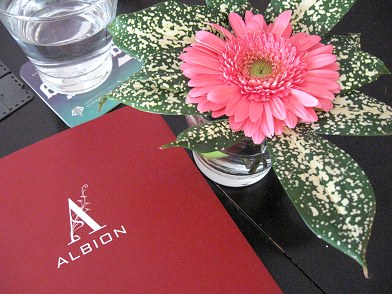first published in The Star, 21 October 2012
When buying books, warning flags to observe include author names that are bigger than the titles, "Winner of the Booker/Man Asian/Nobel/Whatever Prize" - "... brings a cool eye to friendship, love and the idea of belonging in its movements through old and new worlds..." - and abstract-sounding back cover blurbs.

The author once stated that Leela's migratory path mirrors her own: Joseph moved to Britain when she was seven because of her father's job; she lived in France for a year after graduating from Cambridge, teaching English at the famous Sorbonne; and she moved back to India, "a little accidentally", when she was 25.
It's hard to believe that Joseph's second novel is a complete work. Stretched across 31 short chapters, the collage of snapshots of Leela's largely uninteresting early 20s feels like an avant-garde art film in which details trickle in but never form a whole picture, even at the end.
Characters and places abruptly come and go, leaving nary a trace on the reader's mind or heart. Nothing strikes a chord with me. You can put the book down for a break and pick up where you left off easily.
As for the overall tone: "Sharp, funny and melancholy" says the back cover blurb? Mostly melancholy, methinks.
Leela's presence is almost as ephemeral as the rest of the supporting cast, an odd trait for a lead character. She strikes me as aloof, self-absorbed and a little mordant, radiating little warmth with her cloudy disposition and sterile, clinical observations of people and places as she flits from one chapter to another. One is hard-pressed to sympathise with her when, for instance, she gets thrown out of her boyfriend's flat at three in the morning.
But maybe we're not supposed to care too much.
In an interview, Joseph spoke of a kind of "unsettledness" which is probably felt by "a lot of people who live in many places and without a clear sense of how their own sense of self fits within national or regional boundaries". People such as Leela Ghosh and, perhaps, the author herself.
The displaced tend to feel disoriented; far away from home, comfort and stability are sought within the familiar while adjusting, during which some sights, sounds and such feel more important than the rest.
What's not important is blocked out, numbed down and closeted somewhere in the mind to fade away like a traveller's footprints on a beach.
The apparent gaps in the narrative seem to illustrate this but, overall, one feels rushed through a series of half-done dioramas in a museum exhibit put together by an impatient curator.
So the dry, barebones depiction of a young person's life in Another Country feels quotidian. Maybe that's the point – this is no spicy literary pick-me-up perfumed by the kind of exoticism generally associated with the Indian subcontinent. Real life for many of us already has enough drama, so why ramp it up into a full-budget Bollywood song-and-dance?
Joseph's open-ended tale of a migrant's journey would, perhaps, click better with other fellow wanderers: displaced, unsettled individuals seeking stability beyond their beginnings. However little one feels about this book, it's hard not to wish its protagonist all the best in her search for home and self.
For the world-weary wayfarer, there is no greater release than the feeling of coming home.
This review was based on an advance reading copy.
Another Country
Anjali JosephFourth Estate (2012)
265 pages
Fiction
ISBN: 978-0-00-746278-0
Categories:
Book Reviews,
The Star
















